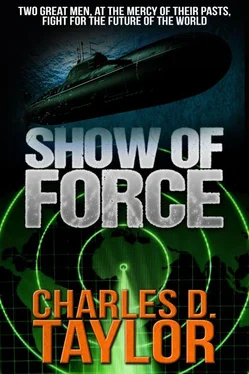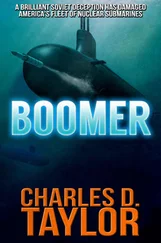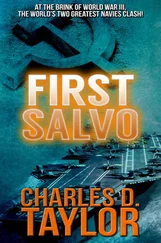They were all silent for a while, lost in those private, personal thoughts they had exposed for just a few moments, memories that you relate to only your closest friends. Yet they knew they were still worlds apart, and that made these moments so much more unusual.
"Why don't you two go into the museum for a while if you want to look at all those paintings," Maria had said. "Tasha and I will stay out here with the boys. They won't understand those old pictures about sea battles and places they never heard about." Alex and David had agreed, and they wandered through the high-ceilinged rooms examining paintings done hundreds of years before of naval engagements between sailing ships in wars forgotten by all but scholars.
Then they were trooping back down the streets of Greenwich to the landing to get a boat back up the Thames. This time, they were near the end of the line, and they found themselves in the stern, looking back upon the sights the boat had passed. The youngsters found that the best part of a return trip was being left alone to watch what they really wanted to see. Their parents talked among themselves, while young Sam and Pietr counted birds and tried to be the first to see something strange floating by.
Those had been wonderful times. It came to an end too soon, for their friendship was looked upon with regret by their superiors. It happened to both couples almost at the same time, as if the two embassies had compared notes and decided to take the same action. They had been able to get together only once more after their orders came through. They had dinner one night at one of hundreds of Indian restaurants in the city. David had been told that his relationship with the Russian officer was looked on suspiciously by some of the senior people in the embassy, once it became known. Quite simply, they felt it was bad for his career and he was being reassigned to Washington to await further orders. For Alex, it was simply orders to return to Moscow right away. They would help Tasha to close the flat, but they wanted him to leave immediately after his papers were in order. He knew the reason, and it was confirmed by Gorenko when he arrived in Moscow. But it had been a time to dream about forever.
Lenin had just completed her turn, coming right to a southerly course as the remainder of the force took station on her. The bright, early morning sun had shone directly in Alex's face, just for a moment, enough to awaken him fully. He didn't know how long he had been asleep. It had originally been a desire to close his eyes and rest until they were formed up, but he knew he had slept hard.
Svedrov was at his side, arms behind his back, watching like a mother duck as the last of the smaller ships scurried into their stations. He was aware, almost at the instant, that his Admiral was awake. He saluted, "Good morning, sir. The last of the early morning replenishment has been completed, and I have the force just coming to one eight zero at sixteen knots." He briefly explained why he had assigned each ship to its current position, and their readiness status. Kupinsky had yet to say a word, but Svedrov knew he was totally alert.
"Thank you, Captain Svedrov." He looked for one of the bridge messengers and motioned with his arm when he saw one. The sailor bounded rapidly across the bridge, his salute slapping his right eyebrow, the fingers remaining right against his forehead until his Admiral asked him to relax. "Please find my steward. Ask him to set breakfast for myself and the captain here. We will be down in fifteen minutes." Again the sailor saluted, turning to carry his message before dropping his hand.
The ever efficient Captain Svedrov had been up very early, ensuring that every little item was taken care of before Admiral Kupinsky awakened. Unlike his brother, who was captain of the missile destroyer Boiky, Svedrov preferred to be an administrator rather than a leader. He would be satisfied with the remainder of his career as Chief of Staff for an admiral, especially this one. This Admiral was by far the finest he had ever served with, and Svedrov would happily remain with him as long as he was wanted. Alongside his leader, he appeared even shorter and stockier than he really was. His face was heavy, his thick dark beard requiring him to shave twice a day if he was to set an example for the rest of the staff. Whether he was taking orders or giving them, his face remained expressionless. It wasn't totally impassive, for he could change it to anger instantly when his Admiral's orders weren't being executed properly. He was a natural buffer between Kupinsky, whose feelings and sensitivity might become apparent to those under him, and other members of the staff and ships' captains. He was also a friend to this quiet leader, whom he revered without question. Captain Svedrov was a necessity for Admiral Kupinsky.
"Before we have our meal, sir, I should give arming instructions to the air group commander. Do you wish to have them carry nuclear weapons today?"
"Not at all. We do not know if we will ever be forced into using them, nor do we even know whether we will have to use weapons today. Perhaps," he sighed, "this will be over before we have to face each other again." He turned to look at his aide more closely. "I understand your concern for the ships and the men, Captain. I feel that same wayvbut I cannot allow us even the slightest chance of incinerating the Americans, even the mistake of firing the wrong weapon, or a malfunction that would cause it. Because then all the work that Gorenko is doing to establish the Americans as the aggressors will be lost." He paused. "And I do not want such a thing on my conscience, either. Arm the outbound flights with conventional warheads and keep enough aircraft in reserve with special weapons should we have to use them after all. Where are the Americans now?" he added as an afterthought.
"Their last position was approximately two hundred miles east of the Seychelles. Intelligence believes they have already turned to the east. They have sent their crippled ships away to the south."
"I'm sure David Charles will head directly to the north of his island, and place himself between it and us. Ask the navigator to set a course for interception with his Task Force 58 based on the next intelligence report."
"If the computer is correct, sir," answered Svedrov, "I expect we will want to swing just a few degrees to the west and increase speed to about twenty knots. That would mean that we would meet them at about noon tomorrow."
Alex Kupinsky smiled. He was very attached to this captain who seemed to anticipate his questions. "Very good, my friend. You read my mind well. I want to see how they react to our meeting them head on. I'm sure you will agree that we are outmatched in an aircraft battle."
Svedrov's brow became a frown. "We damaged many ships yesterday, Admiral."
"That's right. But they have almost literally knocked every plane out of the sky that we have sent at them. We have been able to hold theirs off also, within reason, but I think the only way we can keep the Americans from Islas Piedras is by meeting them directly. Please order the group commander to keep his aircraft out of range and to fire only if they are engaged. I want to have accurate intelligence on their units and their movement. Then you can put your computers to work later today. And, Svedrov, we will make maximum use of our submarines also." He climbed down from his bridge chair, stretching as he did so. "I'm going to have a quick shave. Join me in a few minutes, and we will work out our plans over a good breakfast."
Task Force 58 looked tiny on the radar screens in the Soviet aircraft circling well to the north. Admiral Charles had sent out his own intelligence planes on much the same assignment, and he had no more taste for aerial battles than his Russian counterpart did that day. The pilots avoided each other, much as they would have in Cold War exercises, both under orders not to engage unless fired upon. The two commanders were uncomfortable with the lack of communications with their superiors. Fighting a war was unpleasant enough, but, in the electronic age, it was almost impossible without direct contact with their leaders. They had unknowingly agreed that nuclear weapons would not be used without direct orders, the one comfort provided by a lack of communications. General messages and information still flowed into comm centers, but nothing a Task Force Commander could use to assist himself in tactical decisions.
Читать дальше












